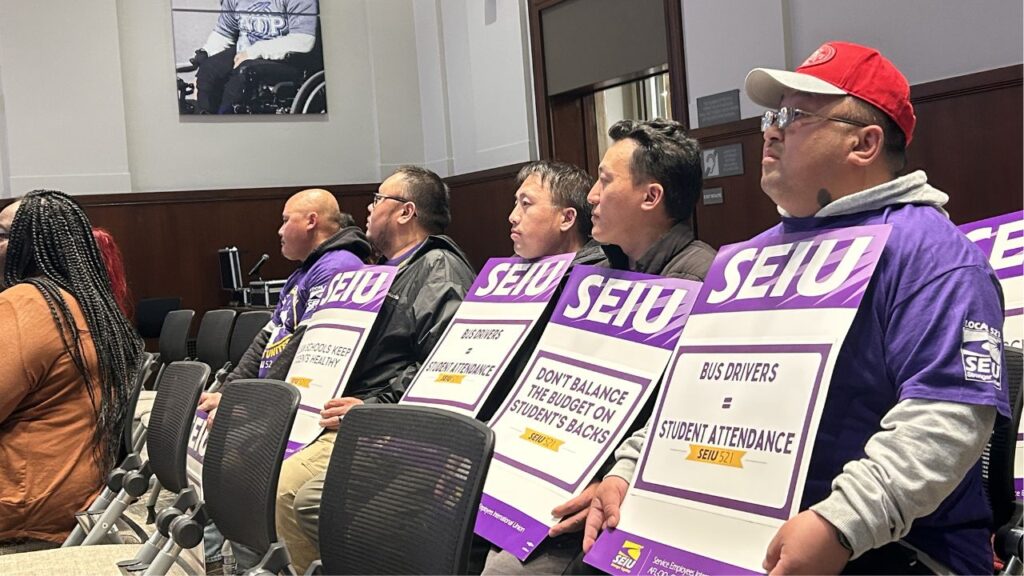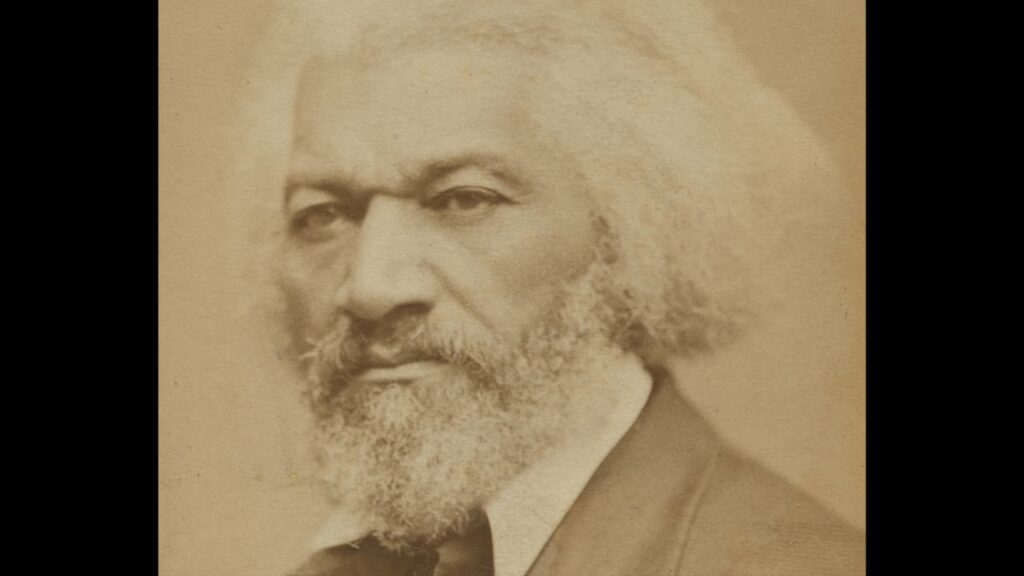Share
Earlier this year, Democrats in the state Capitol introduced several measures intended to limit Californians’ consumption of soda, arguing that rotting teeth and rising diabetes presented a public health crisis demanding action akin to regulations on cigarettes. They proposed taxing soda, banning Big Gulps, prohibiting in-store discounts on soft drinks, banishing them from the front of convenience stores, and slapping safety warning labels on all sugary beverages, from Coca-Cola and sports drinks to sweet tea and chocolate milk.

Laurel Rosenhall
CALmatters
The soda industry responded by ramping up its lobbying in the statehouse, more than tripling the amount it spent in the first three months of this year compared with the same period last year.
Now, as the Legislature hits the session’s halfway point, three of the anti-soda measures have fizzled. Two that remain in play — one requiring warning labels barely squeaked out of the Senate on Thursday, and another prohibiting discount pricing on soda is pending. Both face opposition from lawmakers, who regard the measures as “nanny government.”
Big Soda’s success so far in thwarting an agenda backed by doctors, dentists and public health advocates shows that despite Democrats’ historically large majority, some corporate interests remain influential in a Capitol dominated by varying shades of blue. The soda industry has gained clout by spending millions on lobbying and campaign donations, hiring well-connected former Capitol aides and forming alliances with labor unions that lend additional political muscle.
“There is no doubt that the industry has a very strong voice in Sacramento and unlimited resources. That’s a tough opponent,” said Sen. Bill Monning, who is carrying the bill to require warning labels on sugar-sweetened beverages.
“So we try to use moral persuasion, health persuasion to overcome the political forces.”
Bills to Tax Soda or Require Warning Labels Fail
Monning, a Carmel Democrat, points to research by the national Centers for Disease Control and Prevention that shows drinking sugary beverages is associated with obesity, diabetes and other ailments. Nationwide, the CDC report says, 63% of youth and 49% of adults drink a sugary beverage on a typical day — though consumption is lower in California than in most of the states surveyed, and other reports suggest Americans are drinking more water and less soda since the time of the CDC study.
Monning has carried several unsuccessful bills to tax soda or require warning labels. His current measure would require that sugar-sweetened drinks sold in California carry a notice saying: “STATE OF CALIFORNIA SAFETY WARNING: Drinking beverages with added sugar(s) may contribute to obesity, type 2 diabetes, and tooth decay.”
He recently narrowed the bill to drop the requirement on flavored milk. No surprise, that hasn’t appeased soda companies.
“There are already more effective ways to help people manage their overall sugar consumption rather than through mandatory and misleading messages,” said a statement from Steve Maviglio, a Democratic political consultant working for the American Beverage Association, which includes Coke, Pepsi and the Dr. Pepper Snapple company and which is promoting their drinks with less sugar than standard sodas.
The association hired Fredericka McGee, an attorney and longtime Capitol aide who advised five Assembly speakers, to lead its government affairs in California. The last speaker McGee worked for was Toni Atkins, who is now the leader of the state Senate.
Some Democrats Think Twice About Health Policies
In the first three months of this year, the lobbying operation McGee oversees involved taking five legislators and 16 aides to a Sacramento Kings basketball game, and treating many of them to food and drinks. Such goodies account for nearly $6,800 of the $273,704 the American Beverage Association spent on lobbying during the first quarter — a massive jump from the $76,754 it spent during the same period last year. Much of the spending this year went toward hiring political strategists and pollsters who worked on Barack Obama’s presidential campaigns.
Lobbying ramped up, Maviglio said, in response to the “very comprehensive and well-financed attack on the beverage industry.” Associations representing dentists and doctors, which support the anti-soda bills introduced this year, also spend big bucks lobbying in the statehouse and bestowing legislators with campaign cash. The California Medical Association spent $457,219 lobbying in the first quarter of this year, though it reported work on far more bills than the soda group.
As soda companies fight proposals they believe could harm their business, the message is often amplified by labor unions that carry clout in a Democratic-controlled Legislature. Roughly 25,000 Californians work in the soda industry, many of them in union jobs at bottling plants or delivering beverages to stores and restaurants. Fearing that a decline in soda drinking will reduce their jobs, Teamsters are lobbying against the bill to require warning labels, as they did against the measure to tax soda to pay for public health programs, which stalled last month.
“When the employer that has a unionized workforce and the union are on the same side in a legislative fight, it is a very powerful message,” said Shane Gusman, the Teamsters’ lobbyist.
Hearing the concern from workers makes some Democrats think twice about health policies that could hurt the middle class, Gusman said. The soda tax stalled when the chair of the Assembly’s tax committee said she couldn’t support a regressive tax that would burden people who are poor.
Soda Politics Roiled the Capitol Last Year
The argument that cracking down on soda would be costly to families would likely have emerged had the ban on Big Gulps advanced to a vote. Its author, Democratic Assemblyman David Chiu, pulled the bill before lawmakers could vote on it, following a Twitter dig from one of his fellow Democrats.
“I know I’m frugal,” wrote Assemblywoman Lorena Gonzalez. “But I can’t be the only person who buys the big gulp at the movie theatre and makes the whole family share because it’s much cheaper than individual small drinks. Right?”
Gonzalez, who wields significant power as chair of the appropriations committee, said later that her tweet was a joke, not a policy position. Still, the comment was a clear indication of where debate in the Capitol was heading. The National Association of Theatre Owners made the same argument as Gonzalez in opposing Chiu’s bill. Retailers argued that a size ban wouldn’t decrease consumption because customers would just refill their cups.
“I didn’t mean it in any way to affect the outcome of the bill,” Gonzalez said. “It was just a comment about what happens at the movie theater with my family.”
Soda politics roiled the Capitol last year when the industry teamed up with the powerful Service Employees International Union to get lawmakers to ban cities from passing new taxes on soda or other grocery items until 2031. Frustrated with local soda bans voters approved in San Francisco, Berkeley and Oakland, beverage companies last year poured $8.3 million into a committee crafting a statewide ballot measure that sought to raise the threshold necessary to pass a new tax.
Big Soda’s Successful Playbook
Labor unions wanted to keep the lower threshold but didn’t want to spend money fighting the ballot measure. So they struck a deal: If soda companies pulled their initiative off the ballot, the union would support a ban on local grocery taxes. Lobbying together, SEIU and the soda companies persuaded the Legislature to pass the deal, which then-Gov. Jerry Brown promptly signed into law.
But the deal does not preclude a statewide tax on soda, something doctors and dentists are now working on as they craft an initiative for the 2020 ballot. They’re building an argument that soda industry tactics are similar to those of cigarette companies, and should be taxed and regulated accordingly.
“We saw in the early days of the tobacco fight that it was hard to shake the influence of industry in the Legislature,” said Anthony York, a spokesman for the California Medical Association.
“Tobacco regulation and taxes had more success … going to voters. And you’re seeing a similar dynamic here, quite frankly. The public is ahead of where their regulators are in many places.”
Or maybe health advocates are taking a page from Big Soda’s successful playbook, crafting a ballot initiative they can use as leverage to get what they want from the Legislature next year.
CALmatters.org is a nonprofit, nonpartisan media venture explaining California policies and politics.
Categories

Is ChatGPT Down Again? Here Is What We Know


















